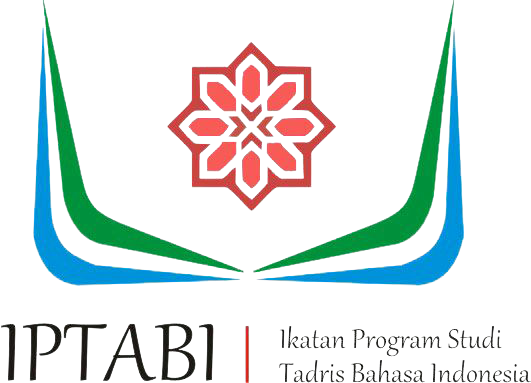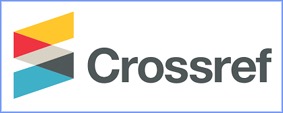Ketidaksantunan Berbahasa Mahasiswa dalam Proses Perkuliahan (Studi pada Program Studi Tadris Bahasa Indonesia UIN Fatmawati Sukarno Bengkulu)
DOI:
https://doi.org/10.29240/estetik.v6i1.5689Keywords:
impoliteness, Language, speech actAbstract
This study aims to describe the form of impoliteness in student language in the lecture process. The study was conducted on students of the Indonesian Language Tadris Departement at Fatmawati Sukarno Bengkulu State Islamic University (UIN). The data analysis method used is descriptive-qualitative. This study found violations or impoliteness in: 1) maxims of wisdom in 3 utterances; 2) modesty maxim of 4 utterances; 3) sympathy maxim of 2 utterances; 4) the maxim of appreciation is 4 utterances; 5) the maxim of agreement is 1 utterance; 6) the maxim of agreement is not found. This research concludes that the impoliteness in the language of Indonesian Tadris Departement students at UIN Fatmawati Sukarno is found in the maxims of impoliteness, tact, humility, sympathy, appreciation, and agreement
Downloads
References
Ariyanti, Tri Dina dan Titje Puji Lestari. 2018. Kesantunan Berbahasa dalam Berkomunikasi untuk Perguruan Tinggi. Bengkulu: Elmarkazi.
Aslinda dan Leni Syahyahya. 2010. Pengantar Sosiolinguistik. Bandung: PT Refika Aditama.
Chaer, A. (2010). Kesantunan Berbahasa. Jakarta: Rineka Cipta
Chaer, Abdul. Agustina, Leonie. 2004. Sosiolinguistik: Perkenalan Awal. Jakarta: Rineka Cipta
Dictionary, M. H. (2010). Model Komunikasi. Jakarta: Karsa Pustaka.
Fathurohman, Irfai.( 2013). Wujud Kesantunan Berbahasa sebagai Profesionalisme Guru di Tingkat Sekolah Dasar Dalam Berkomunikasi melalui Media Short Message Service: Kajian Pragmatikhttp://eprints.umk.ac.id/1278/2/MAKA LAH_PGSD.pdfâ€
Kamus Besar Bahasa Indonesia Online. http:// www.kbbionline.com/arti/gaul/anjay
Kasper, Gabriele. “Locating Politeness in Interaction†dalam Linguistik Indonesia Jurnal Ilmiah Masyarakat Linguistik Indonesia. Terakreditasi SK Dirjen Dikti No. 64a/DIKTI/Kep/2010
Leech, Geoffray. 2006. Prinsip-prinsip Pragmatik. Jakarta:Universitas Indonesia Markhamah, dkk.( 2011). Analisis Kesalahan dan Kesantunan Berbahasa. Surakarta: Muhammadiyah University Press
Moleong, Lexy. 2005. Metodologi Penelitian Kualitatif. Bandung: Remaja Rosdakarya Offset
Nisja, Indriani. (2009). ‘Kesantunan Berbahasa dalam Berdiskusi Mahasiswa Jurusan Bahasa Indonesia Semester III Tahun 2007-2008 Ummy Solok’. Dalam Jurnal Ilmiah Tambua, Vol. VIII, No. 3, September-Desember
Pranowo. (2009). Berbahasa Secara Santun. Yogyakarta: Pustaka Pelajar Prayitno. (2009). Kesantunan dalam Berkomunikasi. Jakarta: Bumi Aksara
Rahardi, Kunjana.(2005). Pragmatik Kesantunan Imperatif Bahasa Indonesia. Jakarta: Penerbit Erlangga
Uddin, Akhyar. (2012). Strategi Kesantunan Berbahasa Indonesia Warga Kampus UniversitasJambi dalam Meminimalkan Paksaan kepada Petutur,. http://journal.unbari.ac.id/index.php/JIP/article/view/69
Wahyuni, Sari. (2014). Kesantunan Berbahasa Siswa di Lingkungan SMA Negeri 3 Kota Bengkulu. Source: http://repository.unib.ac.id/8234/ .
Wijana, Dewa Putu. (1996). Dasar-Dasar Pragmatik. Yogyakarta: Andi Offs
Zamzani, dkk. (2010). Pengembangan Alat Ukur Kesantunan Behasa Indonesia dalam Interaksi Sosial Bersemuka dan Non Bersemuka. Laporan Penelitian Hibah Bersaing (Tahun Kedua). Yogyakarta: Universitas Negeri Yogyakarta.
Downloads
Published
How to Cite
Issue
Section
Citation Check
License
Copyright (c) 2023 Randi Randi, Wenny Aulia Sari

This work is licensed under a Creative Commons Attribution-NonCommercial-ShareAlike 4.0 International License.
Authors who publish with ESTETIK : Jurnal Bahasa Indonesia agree to the following terms:
- Authors retain copyright and grant the journal right of first publication with the work simultaneously licensed under a Creative Commons Attribution-NonCommercial-ShareAlike 4.0 International License (CC BY-NC-SA 4.0) that allows others to share the work with an acknowledgment of the work's authorship and initial publication in this journal.
- Authors are able to enter into separate, additional contractual arrangements for the non-exclusive distribution of the journal's published version of the work (e.g., post it to an institutional repository or publish it in a book), with an acknowledgment of its initial publication in this journal.
- Authors are permitted and encouraged to post their work online (e.g., in institutional repositories or on their website) prior to and during the submission process, as it can lead to productive exchanges, as well as earlier and greater citation of published work (See The Effect of Open Access).






